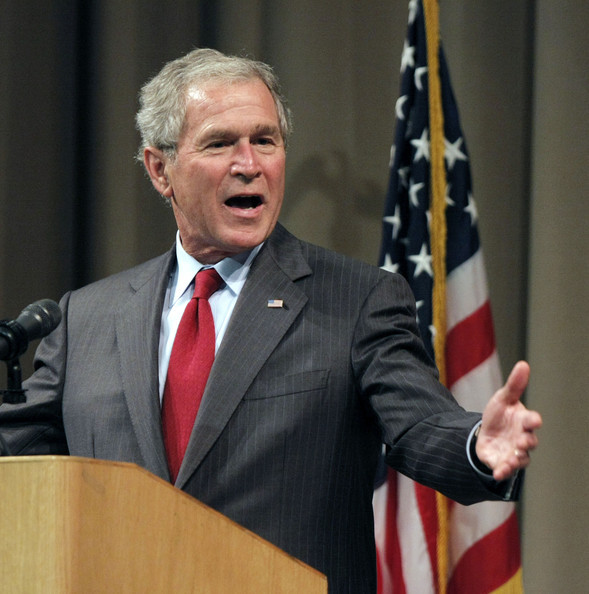Former President George W. Bush and action star Sylvester Stallone — two faces of the baby boomer generation — both turned 65 on July 6.
And though that may be the traditional age of retirement, what does it mean to be 65 today?
“People are so active … well after age 65,” said Sara Leitsch, senior research scientist at the National Opinion Research Center at the University of Chicago. “It’s an imaginary number based on Social Security.”
While the accepted retirement age shifted downward between the 1950s and the mid-1980s, baby boomers are expecting to work longer, reversing the trend, according to the University of Michigan Health and Retirement Study.
“Retirement used to be at 65 because people weren’t physically able,” Leitsch said.
Today, most people decide when to retire based on financial — not physical — reasons, she said, adding that the economic downturn has forced many people to work longer than they want.
In fact, people born in 1946, like Bush and Stallone, aren’t eligible to collect their full Social Security benefits until next year, though those two in particular might be OK without it.
Doctors and researchers who study age look at people in their 80s, Leitsch said, adding that healthy living earlier in life dictates healthy aging.
“Sixty-five now is what 45 used to be. People are active, they’re engaged,” she said. “They have the freedom to make choices they never before could.”
In 1950, men who retired at 65 lived an average of 13 more years, while women lived 15 more, according to the University of Michigan study. Today, men who retire at 65 live 17 more years, and women live 20 more years.
These adults, in their 70s and 80s, are staying more active than ever before, Leitsch said.
“Even at older ages, adults stay very active in their social network, very active intellectually in their hobbies and activities and their community organizations,” said Leitsch, who cites advances in medicine and more awareness about healthy lifestyle behaviors. “People are not only living longer but they’re living healthier longer.”
At the Sun City Huntley retirement community, for instance, the average age of residents has increased from the mid-60s to the late-60s since it opened 12 years ago, according to Cynthia O’Connor, lifestyles director there.
“Feeling great is ageless,” O’Connor said.
Likewise, Leitsch didn’t give an age for the new “senior.”
“Age is no longer chronological,” she said, “It’s physical.”
Send questions/comments to the editors.




Success. Please wait for the page to reload. If the page does not reload within 5 seconds, please refresh the page.
Enter your email and password to access comments.
Hi, to comment on stories you must . This profile is in addition to your subscription and website login.
Already have a commenting profile? .
Invalid username/password.
Please check your email to confirm and complete your registration.
Only subscribers are eligible to post comments. Please subscribe or login first for digital access. Here’s why.
Use the form below to reset your password. When you've submitted your account email, we will send an email with a reset code.